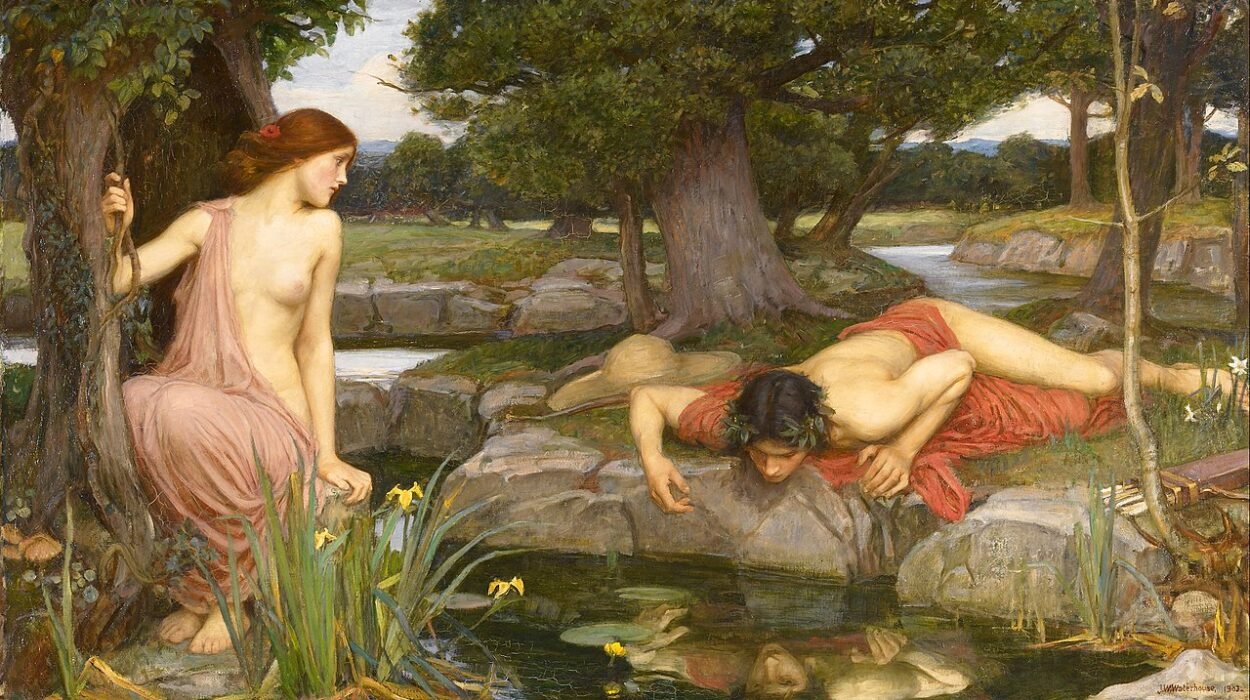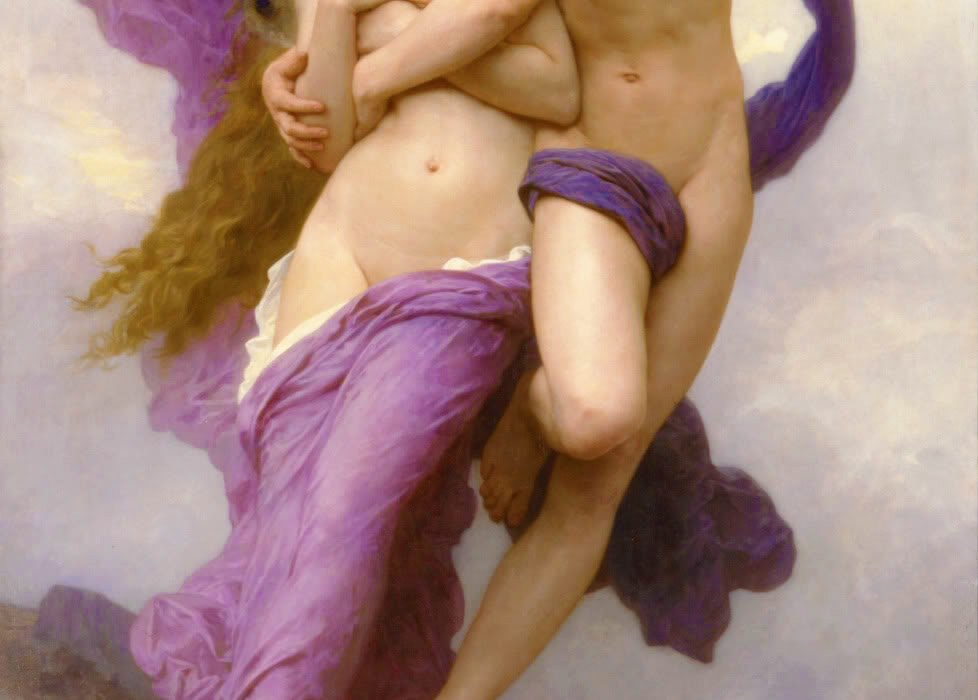Among the countless myths of ancient Greece, few stir the human heart as deeply as the tale of Orpheus and Eurydice. It is a story that transcends time, reaching across centuries to remind us of the fragility of love, the inevitability of death, and the longing of the human soul to fight against both. In Orpheus, we see the power of music, art, and devotion. In Eurydice, we see the fleeting nature of life and beauty. Together, they embody one of humanity’s oldest and most haunting questions: Can love conquer death?
The myth is not just a tragic tale preserved in ancient poetry—it is a reflection of human yearning. From the works of Virgil and Ovid to operas, paintings, ballets, and films, the story of Orpheus and Eurydice has been retold endlessly, each time reawakening the same emotions: awe, sorrow, and wonder. It is not merely a Greek myth; it is a mirror of the human condition.
Orpheus: The Man Whose Music Moved the World
To understand this story, we must first understand Orpheus himself. Born of a mortal mother, Calliope—the Muse of epic poetry—and in some versions, the god Apollo, Orpheus was destined to live between the divine and human worlds. From his earliest days, he was gifted with an extraordinary talent: his music was not merely sound, but a force that could move all living things.
When Orpheus played his lyre, rivers slowed, trees leaned closer, animals gathered in peace, and even stones were said to shift toward him, as though the inanimate world itself longed to be alive under his song. He was no ordinary musician; he embodied the idea that art is not a luxury but a power capable of reshaping reality.
In the mythic imagination of the Greeks, Orpheus represented the soul of humanity. Where heroes like Hercules wielded strength and warriors like Achilles commanded armies, Orpheus held a different weapon: beauty, harmony, and persuasion. His music was a reminder that sometimes the greatest power is not force, but art.
Eurydice: A Love Born in Light
In the midst of his fame and gift, Orpheus met Eurydice, a nymph of extraordinary beauty. She was not just lovely in form but also graceful in spirit, a being of gentleness and purity. Their love, as the poets describe it, was immediate and unshakable. Eurydice became the inspiration for Orpheus’s most heartfelt songs, and he in turn became the anchor of her happiness.
For the Greeks, love was often depicted as fleeting, capricious, or bound by fate. Yet Orpheus and Eurydice seemed to embody something different: a love of rare harmony, one that promised eternity. They were joined in marriage, and in that union, the world seemed to shine a little brighter, touched by the promise of a happiness both divine and human.
But as in many Greek myths, joy was not meant to last. The very beauty of their love invited tragedy, for the gods often reminded mortals of the fragility of human bliss.
The Death of Eurydice
Their happiness was shattered on what should have been a day of celebration. Accounts vary, but most tell us that Eurydice, while wandering in a meadow with her companions, was bitten by a venomous serpent. The bite was swift, the poison merciless. Eurydice fell, her life slipping away as suddenly as a candle blown out by the wind.
Orpheus’s grief was immediate and boundless. For a man whose music could move mountains, no melody could now soothe his own soul. He sang songs of mourning that caused even the gods to weep. Yet in his grief, he resolved to do something no mortal had ever dared: descend into the realm of the dead and bring his beloved back.
The Journey into the Underworld
The Underworld in Greek mythology was not simply a place of shadows. It was the domain of Hades and Persephone, a realm where souls resided after death. Guarded by the three-headed dog Cerberus and separated from the world of the living by the River Styx, it was a place from which no mortal could return.
Yet Orpheus, armed not with sword or shield but with his lyre, made the perilous descent. The myths describe his journey as one of profound courage and unimaginable sorrow. As he played his lyre, the Underworld itself was transformed.
Cerberus, the fierce guardian, softened and lay still under his music. The souls of the dead paused their wandering, weeping at the beauty of his song. The Furies, those relentless punishers of the damned, ceased their torment to listen. Even the rivers of the Underworld, the Styx and Lethe, seemed to flow more gently.
Finally, Orpheus came before Hades and Persephone. There, in the heart of darkness, he sang not of victory or conquest, but of love—love so pure it dared to defy death itself.
The Bargain with Hades
Hades, the stern ruler of the dead, was not easily moved. Yet even he and Persephone, queen of the Underworld, were touched by Orpheus’s song. Never before had they heard such sorrow made beautiful, such longing woven into melody.
Hades granted Orpheus a gift that no mortal had ever received: Eurydice could return with him to the world of the living. Yet there was one condition, one rule that must not be broken: as they journeyed back, Orpheus must not look behind him until both had reached the surface. If he did, Eurydice would be lost to him forever.
It was a test of trust, of faith, and of restraint.
The Ascent and the Fatal Glance
With Eurydice following behind, Orpheus began the long ascent from darkness to light. Step by step, he moved upward, his heart pounding with both hope and fear. His lyre was silent now; only his faith in the gods’ promise guided him.
But the silence of the Underworld pressed upon him. He could not hear Eurydice’s footsteps. Was she truly there, or had Hades deceived him? Doubt, that most human of weaknesses, began to gnaw at him.
At the very moment he reached the threshold of light, Orpheus turned to see her. In that instant, Eurydice was pulled back into the shadows, her arms reaching for him, her lips whispering his name one final time.
She was gone. Forever.
The Endless Grief of Orpheus
Orpheus was left shattered, his heart a hollow echo of its former song. He had nearly conquered death, but his own doubt had destroyed his chance. No second journey was permitted; no appeal could move the gods again.
In his grief, he rejected the company of others and wandered alone, singing songs of sorrow so profound that the world wept with him. Some myths say he refused the love of other women, choosing to remain faithful to Eurydice even in her absence. Others suggest he turned entirely away from earthly desire, devoting himself only to his art.
In the end, Orpheus himself met a violent death—torn apart by the Maenads, frenzied followers of Dionysus, angered either by his rejection or by his refusal to honor their god. His head and lyre, thrown into the river, continued to sing as they floated downstream, carrying his love and sorrow forever.
Yet in death, Orpheus was reunited with Eurydice in the Underworld. At last, the lovers were together, beyond the reach of time, in a union that defied even the cruelty of fate.
Symbolism and Meaning of the Myth
The story of Orpheus and Eurydice is not just a tale of ancient Greece—it is a universal metaphor. It speaks of love’s power to transcend boundaries, but also of the frailty of human trust. It asks us to consider the tension between faith and doubt, between patience and desire.
Orpheus’s glance back is both a failure and a profoundly human act. Who among us could walk in silence, never looking back to ensure the one we love is still with us? In this, Orpheus embodies the deepest vulnerabilities of the human heart.
For the Greeks, the myth was also a reflection on the power of art. Orpheus’s music nearly conquered death. It suggests that beauty, creativity, and expression are forces as powerful as any weapon. Even today, when we listen to a song that stirs our soul, we feel the echo of Orpheus’s lyre.
Orpheus and Eurydice in Literature and Art
The myth has inspired countless works across centuries. Virgil’s Georgics and Ovid’s Metamorphoses preserve the ancient versions. Later, poets like Rainer Maria Rilke reimagined the tale, and composers such as Monteverdi, Gluck, and Offenbach transformed it into operas of haunting beauty.
Painters have depicted Orpheus turning toward Eurydice, the moment of tragic loss frozen in canvas. Dancers and filmmakers have retold the myth in movements and images, each finding new meaning in its themes.
What makes this story timeless is its adaptability: each era, each culture, finds in Orpheus and Eurydice its own reflection—whether as a meditation on love, on art, on death, or on the thin line between faith and despair.
The Legacy of Love Beyond Death
In the end, the myth of Orpheus and Eurydice is not merely about failure or tragedy. It is about the persistence of love against impossible odds. Orpheus dared to challenge death itself, and though he failed, his devotion was unbroken.
The myth reminds us that love is not always triumphant, yet it is always meaningful. Even in loss, it shapes us, transforms us, and leaves songs behind that echo through the ages.
Orpheus’s lyre may be silent now, but his story continues to sing within us. It is a reminder that love, even when it cannot defeat death, can still defy it—through memory, through art, and through the enduring power of story.






